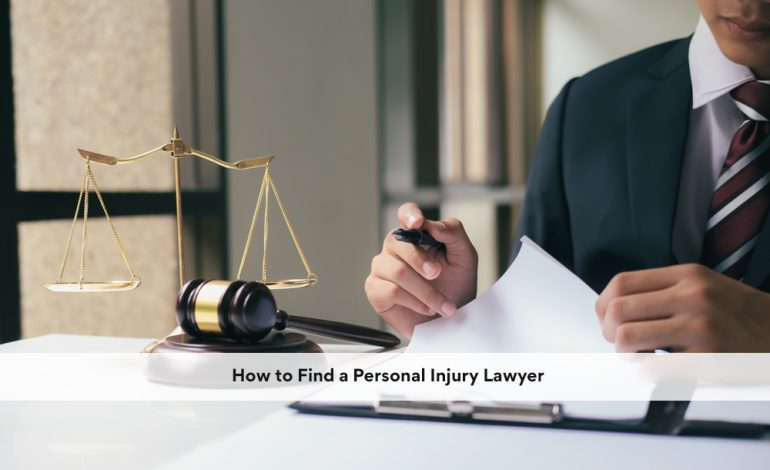How to Win a Social Security Disability Hearing
People apply for SSD benefits because they need them. Since you’ve paid into the system throughout your working life, you deserve to receive every benefit you’re entitled to.
With so much at stake for you and your family, you need to be fully prepared to present your best case when the date for your Social Security Disability hearing finally arrives. To help you win the highest possible monthly benefit, this article lists the most important tips and suggestions for you to make the most out of your hearing.
Hire an experienced SSD lawyer right away — Don’t try to represent yourself.
If you want to win a Social Security Disability hearing, you need to have an experienced SSD lawyer help you file the claim, prepare the evidence, gather the medical records, draft the briefs, and then present the product of all that work at the hearing.
You may be tempted to do it all yourself, but don’t. Statistics show that claimants who have a lawyer to handle the SSD hearing are twice as likely to win as a claimant who doesn’t have a lawyer.
Remember that an SSD lawyers’ fees are paid after you are awarded your benefits. If you don’t win, you pay no attorney fees. You have nothing to lose and everything to gain by using a professional to advocate for you and your family.
Keep in Contact with Your Lawyer
It may seem unnecessary to encourage SSD applicants to stay in touch with their lawyer, but people do fall out of contact and end up missing important notices and even the hearing itself. We know that some disabled people have trouble remembering, or are forced by financial pressure to move frequently, or they may suffer from a comorbid substance issue unrelated to their disability.
They are all still deserving applicants who deserve to have their cases heard and to be present to participate. To ensure you and your lawyer stay in touch, enlist another family member or a reliable friend to act as an alternative contact. Since they will know where you are and how to reach you, they can pass the word to you that your lawyer needs to speak to you.
Keep All Your Medical and Therapy Appointments
The purpose of your SSD hearing is to convince an administrative law judge (ALJ) that you are qualified for benefits and that you deserve the highest benefit award possible in your circumstances. One of the most damaging facts the judge can learn is that you regularly missed doctor’s appointments and therapy sessions.
These failures to maintain your treatment signal to the judge that you’re not taking the disability you claimed very seriously, or that it’s not as bad as your paperwork claims, or that your failure to pursue the prescribed treatment is prolonging your disability when treatment might help you recover.
None of these ideas work in your favor. An occasional missed appointment might be unavoidable because of an emergency or scheduling conflict. But always make sure you contact the doctor immediately and reschedule the appointment for the nearest date possible.
Keep a Daily or Weekly Log of How Your Disability Affects Your Daily Life
You can wait anywhere from eight months to two years before your SSD hearing is conducted. The national average waiting time is 16 months. Will you remember every obstacle you could not overcome in your daily life because of your disability? Will you remember every time your disability interfered with some daily activity in your life?
No one could possibly keep every detail in their memory for two years. That is why you should keep a regular journal or log to write down any important development or any new task you can’t complete because you had too much pain, or you couldn’t walk a certain distance, or any other relevant event.
Not only will those notes help your lawyer present your complete story to the ALJ, but they will also assist your healthcare providers to track your progress or lack of progress as they treat you.
The log need not be a daily, minute-by-minute report. You should make a habit of keeping notes when your disability plays a role in your life. When it does, you simply write a few details down when you get home. You will be surprised at how valuable and how informative the log will be after you’ve written entries for 18 months or two years.
AT THE HEARING
Finally, your hearing date has arrived. Now what?
Dress Respectfully (It’s a big day!)
Your goal is to make sure the judge treats you with respect. If you want them to respect you and your case, it makes sense to let the judge know you respect them and you know it is an important hearing. Dressing respectfully conveys those messages to the judge.
That does not mean you need to wear a business suit or a formal dress. It simply means that your clothes should not be what you might wear to watch a football game or to go to the beach. Wear shoes instead of sneakers, and pants instead of jeans, if you can. Of course, if your circumstances leave you with little choice, then wear what you have with dignity. The clothes don’t define you; they are just an extra way to send a message without speaking.
Listen to the Questions Before Answering
No one feels comfortable when they are at a hearing with a judge deciding something about your life. Everyone is nervous. Don’t beat yourself up for being on edge. Plan for it and understand that it’s ok.
People who are a little nervous sometimes tend to answer questions quickly, sometimes even before the judge finishes the question. Wait. Listen to the question. Then answer as best you can without trailing off into a side story. Give the judge the answer and wait for another question.
If you don’t know the answer or you can’t remember the answer, don’t guess. If you guess, you’ve got a 50% chance of being wrong. If you think your lawyer may have something that will refresh your memory, then ask to be reminded by looking at the material. You probably won’t need to ask, but feel free to if you think it’s important.
Don’t Be Embarrassed to Tell the Judge Your Experiences
Living every day with a disability is upsetting. It is often depressing, discouraging, frustrating, and painful. Tell the judge the truth about your emotional experience. The physical disability is not divorced from your emotional life. The judge is human, and they want to have a full understanding of what your life with your disability is like.
Some disabilities involve functions of the body that are too personal to discuss with strangers. The judge should be viewed as someone who needs to know the details to help you. Sharing little details often convinces a judge your case is genuine because only a true sufferer would know that small detail, or perhaps because your emotions slipped out while you spoke.
Be Honest — Don’t Exaggerate
Just as a little emotion can communicate a genuine feeling, exaggerating the truth can stand out like a neon sign to an experienced judge. Do not exaggerate.
If you filed your SSD application because you became disabled, and you followed your lawyer’s guidance and kept your healthcare appointments, you shouldn’t need to try to improve your case by blowing things up bigger than they are.
One important point to remember is that being caught in a lie undermines every other statement you make. Once a judge loses faith in your credibility, they may doubt even the most genuine parts of your claim. Whatever you think might be gained by exaggerating is not worth destroying the rest of your case.
Be Honest — Don’t Minimize Your Disability
It may seem odd but many people who live with pain or disability tend to minimize it when talking with others. They may not want to get into the details of their condition with the person, or they don’t think the situation is appropriate to discuss it.
Our society may encourage toughness, fighting through the pain, or shaking off an injury. You will not score points with the judge by putting on a brave face. If you have difficulty or pain when you perform a daily task, like climbing stairs, showering, walking, or even sitting for sustained periods, tell the judge about it. The hearing is your chance to put it all on the table to be seen. If you hide it from the judge, then you are working against your benefits.
Prepare for Bad Facts
Everyone has some part of their present or past life that they wish they could erase. But we can’t undo the past and we can’t ignore parts of our SSD case that might look bad to the judge. There are some things we can do to prevent them from being worse than they need to be.
First, don’t volunteer negative information if the judge didn’t ask about it. Good people often think that they will be rewarded for being completely open about some weakness. In SSD hearings, as in any other formal legal environment, it’s best just to answer the question that was asked and stop talking.
If the judge does ask about something negative, like a substance addiction that resulted from taking prescription drugs after a painful injury or surgery, admit the fact and explain if it is related to previous medical treatment. Hopefully, there will also be some history of seeking treatment for the addiction. Most negative facts damage the claim less than we fear they will.
Best Advice
If we could offer you only one bit of advice, it would be to contact a qualified, experienced Social Security lawyer as early as you can. Nothing is more important to the success of your SSD claim than collecting the full medical record, gathering all possible supporting material, filing a complete and proper claim, and preparing a compelling presentation of the case at your hearing.
The Clauson Law Firm specializes in handling SSD and SSI cases and we’ve been helping thousands of claimants for decades. Let us help you and your family get the SSD benefits you deserve. Contact us for a free case review today.


